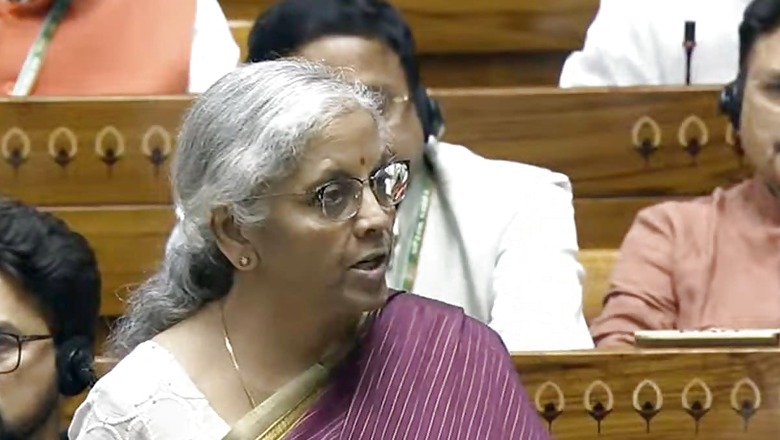
views
The lower tax rate of 12.5 per cent along with the removal of the indexation benefit on long-term capital gains (LTCG) in the Budget 2024-25 became the biggest talking point as it came as a mixed bag for property sellers. Some stood to gain, while others got disadvantaged. Now, the government has cleared the air and has provided relief to taxpayers selling property before July 23, 2024, by giving them an option to either choose 20 per cent with indexation or 12.5 per cent without indexation, whichever is lower for them. The Budget was announced on July 23, 2024.
What Are LTCG and Indexation Benefits?
Capital gains are profits arising out of an investment. Long-term capital gains are the profits generated by keeping investment for over a year in the case of equities and two years in the case of real estate.
Indexation benefit is given to investors to adjust for inflation while calculating LTCG. It helps investors lower their capital gains taxes as it raises the cost of property purchased. For example, the property bought in 2000 will be re-priced as per today’s price after adjusting for inflation and then the LTCG (selling price minus purchase price) is calculated for tax purposes.
What was the Budget Announcement?
Before the Budget 2024-25, LTCG had stood at 20 per cent with indexation. In the Budget, Finance Minister Nirmala Sitharaman proposed to lower the LTCG rate to 12.5 per cent with removing the indexation benefit. This sparked concerns among investors as it raised tax liability for many property sellers.
According to the Memorandum to the Union Budget, “With the rationalisation of rate to 12.5 per cent, indexation available under the second proviso to section 48 is proposed to be removed for the calculation of any long-term capital gains which is presently available for property, gold, and other unlisted assets. This will ease the computation of capital gains for the taxpayer and the tax administration.”
What is the Latest Change in the LTCG Tax Proposal?
Now, in order to give respite to the taxpayers, the government has proposed amendments to the Finance (No.2) Act, 2024. As part of it, the finance minister, which will move the amendments today in the Lok Sabha, proposes to give property sellers the option to choose between 20 per cent and 12.5 per cent tax rates.
As per the amendments to Finance Bill, 2024, circulated to the Lok Sabha members, an individual or HUF buying houses before July 23, 2024, can compute his taxes under the new scheme of 12.5 per cent without indexation and the old scheme of 20 per cent with indexation and pay such tax which is lower of the two.
The new law applies to all Indian citizens and HUFs, but excludes NRIs, companies, and LLPs.
How Will It Benefit Property Sellers?
After the Budget announcement 2024 on the removal of indexation benefit, those who purchased property in the last decade stood to lose the most.
For example, if you bought a property in 2005 for Rs 1 lakh and are planning to sell now for Rs 5 lakh, the 12.5 per cent tax will simply be levied on the Rs 4 lakh capital gain. However, earlier, the cost of property used to be indexed to the year of selling as per inflation. For instance, if the cost of the property has risen to Rs 3 lakh after adjusting for inflation, the LTCG would have been imposed on just Rs 2 lakh.
Now, after the proposed amendments are made today, you can choose either of the two LTCG tax computation methods, whichever suits you.
Parth Mehta, chairman and managing director of Paradigm Realty, said, “The new taxation slabs for long-term capital gains are split into two parts. The previous policy of 20% will be really helpful for those with significant capital gains. For example, if a property bought in 2001 for 25 lakhs is sold in 2025 or 2026 for 3 crores, the seller pays 20% tax on the 2 crore 80 lakh gain, which is beneficial.”
For someone with a short-term capital gain (2-3 years), the 12.5% slab is more suitable as there hasn’t been a significant jump in capital appreciation. Thus, opting for the lower 12.5% rate makes sense, he added.
“The grandfathering provision allows taxpayers to choose between the new scheme (12.5% without indexation) and the old scheme (20% with indexation) for transactions finalised before July 23, 2024. This provides flexibility, making it advantageous to take indexation benefits where the tenure is long and capital appreciation significant,” Mehta said.




















Comments
0 comment